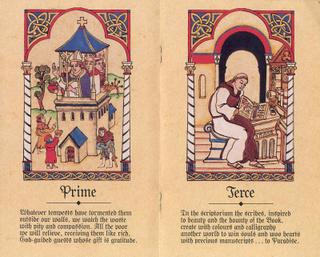The Pastor as "Abbot"

The church where I currently share in leadership is in the midst of making important decisions regarding the future--including a potential shift in locations. One of the positives that has emerged this summer is the discussions we've been having regarding the mission of the church. Unfortunately, the idea of mission has been reduced by many to some kind of stilted, flashy-sounding, single sentence which would encapsulate who we are. At St. Paul's we have learned/are learning the importance of simply "being the church": reading ourselves into the lectionary texts, celebrating the sacraments regularly, ministering to those in need. Through this experience we are coming to re-think the role of the pastor.
Alan Roxburgh ("The Missional Church") and others have recently suggested that, "missional leadership is more about the rediscovery of the ancient work of the abbot among a people." As someone who annually takes theological students to a Benedictine community, this has a lot of appeal to me. Those of us who lead need to understand that we are novices as well and that all of us must learn to school ourselves in the ancient practices of the church. Coming under the authority of anyone or anything is very foreign to those of us who grew up in rebellion, but it has become an absolute key for me in understanding my own calling as a minister of the gospel. Learning to speak this language of community seems very foreign to we Americans but is what demarcates the early church from much of the facade which might describe contemporary evangelicalism.
An abbot, by necessity, must learn to know his community and challenge people to live up to their calling through the regular practice of prayer and work. Engaging in this role requires enormous sensitivity to those who make up the community, as well as to the Holy Spirit. This seems to me to be a much more appropriate model than the CEO-dominated rhetoric which has plagued the church growth movement. Negotiating this transition requires the willingness to not only endure pain but stand four-square against the winds of the culture and sub-culture. Figuring out how to equip my students for this transition is at the heart of my prayers these days.


<< Home